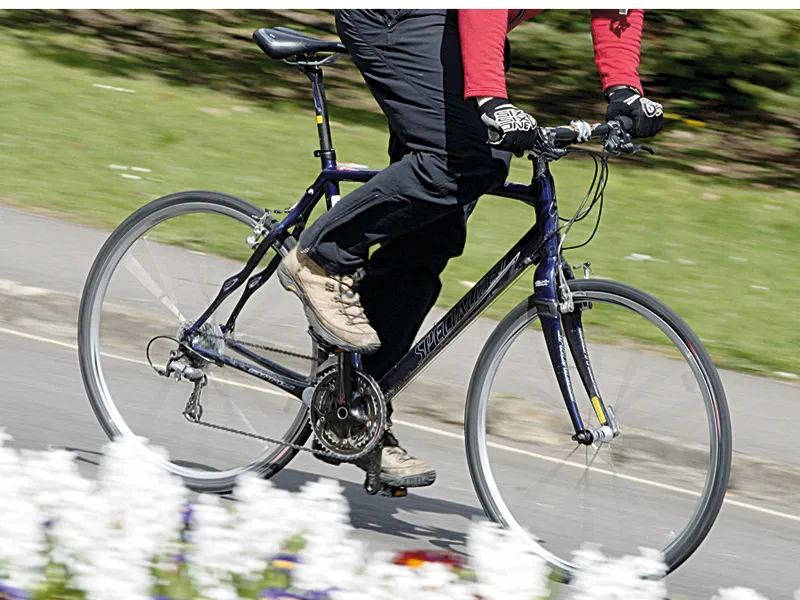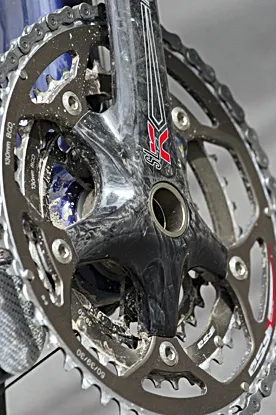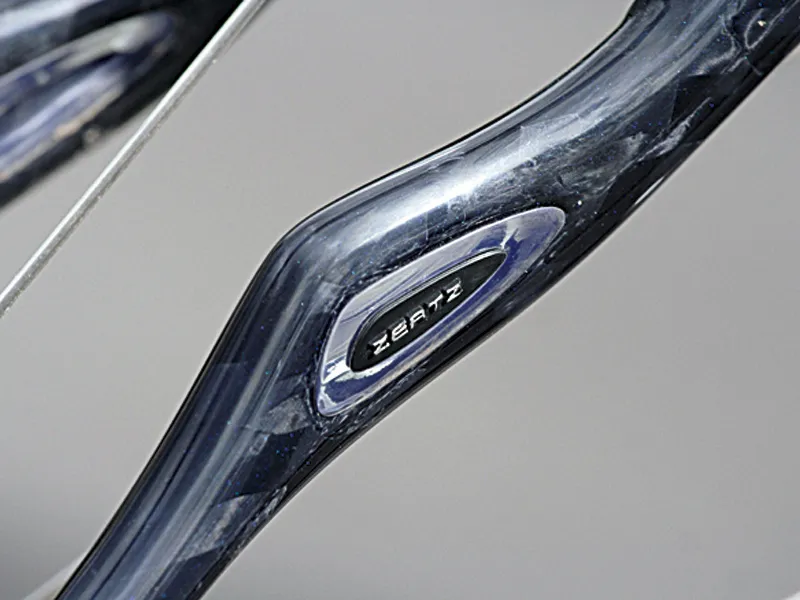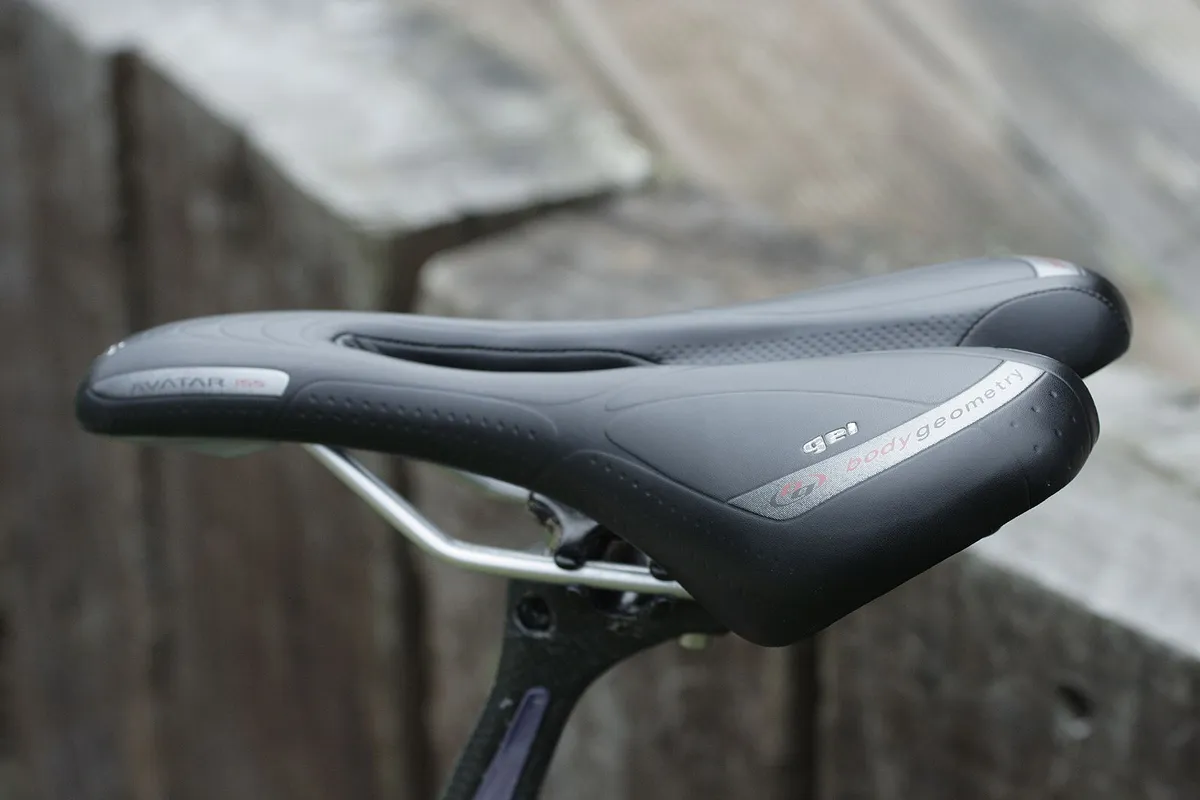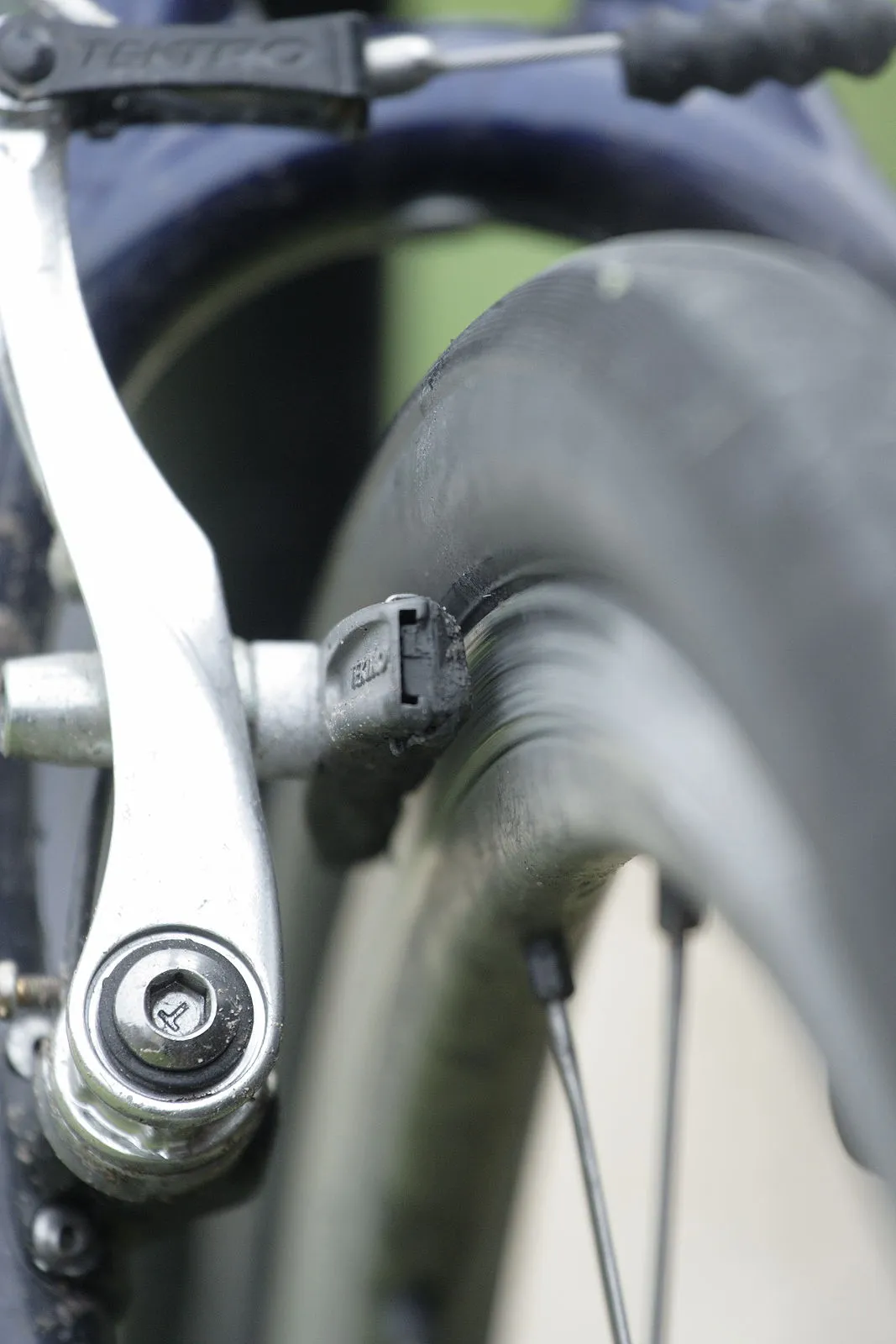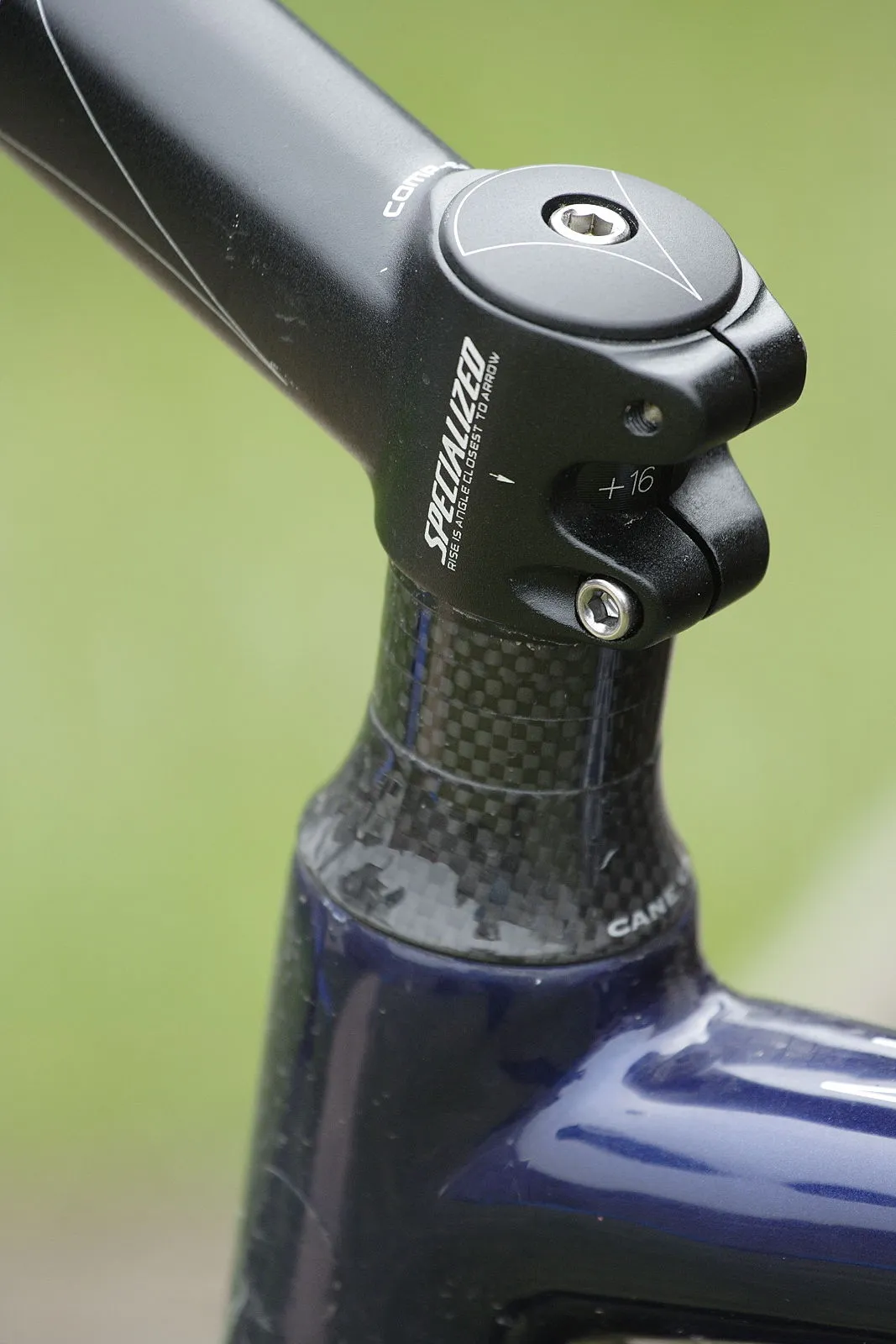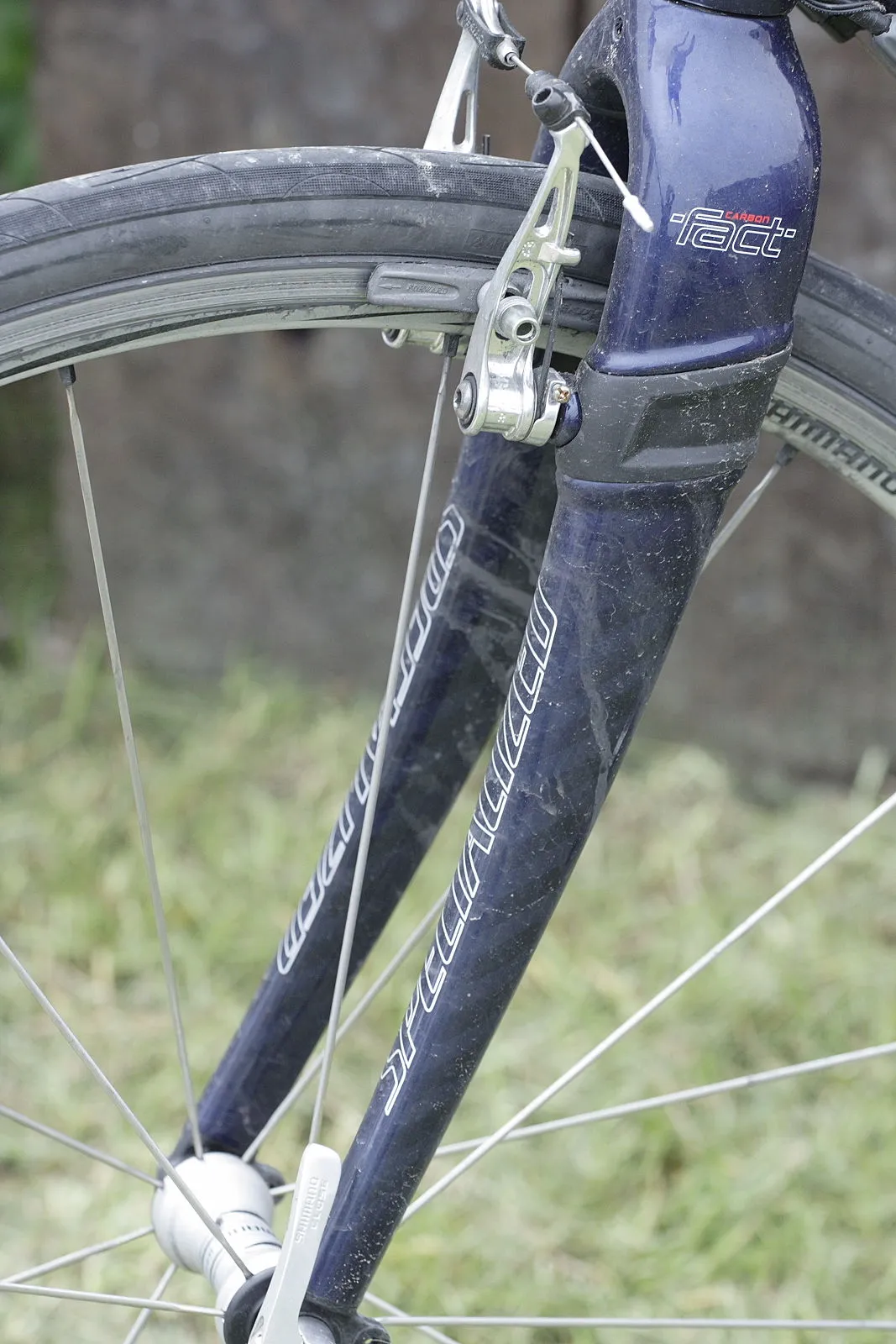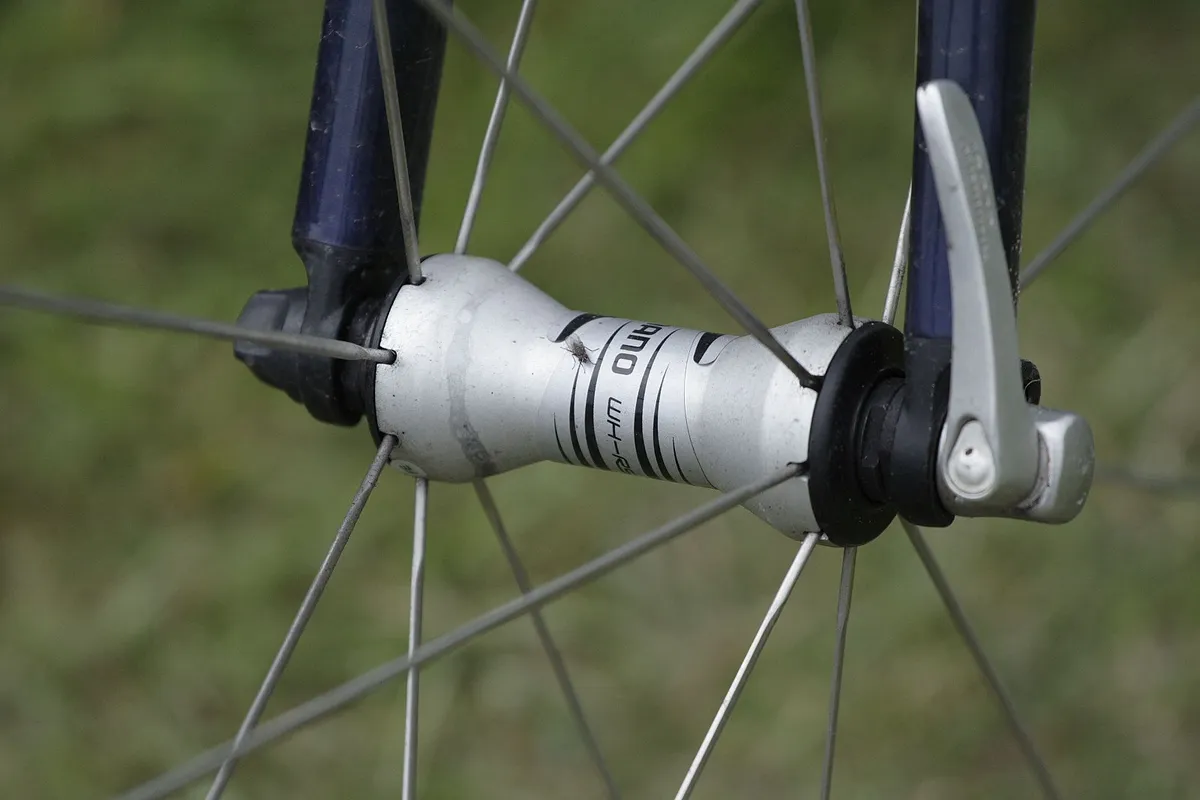Specialized describe the Sirrus range as 'user friendly', and the LTD is the top-dollar carbon-framed incarnation with a ten-speed drivetrain.
Tipping the scales at a shade over 20lb, it's a direct competitor to the Trek 7.9FX we tested (and liked) a couple of months ago. The extra £200 buys you a few more carbon bits (chainset, brake levers), but overall the spec is quite similar.
Ride: fast, comfortable, a big mile star
It's very difficult to isolate the contribution made to comfort by the Zertz gel inserts in the seatstay as opposed to the inherent flex of the frame and the big 700x28c all-condition tyres, but it all adds up to a supremely comfortable ride.
The position is less upright than the Trek, and for general commuting and fitness riding it's more or less ideal. The stem is flippable, and also features an asymmetric shim that allows you to fine-tune your position.
Around town it's well-behaved and goes exactly where you point it, but this bike really shines when you start racking up the miles. I rode it on a 100 mile point to point I know fairly well, and it was by some margin the most comfortable bike I've ever taken on that route.
Normally by 60 miles or so I'd be standing up for a few hundred metres every couple of miles to give my big end a break, but the Sirrus was supremely comfortable throughout, and by the end my rear was happy to go on, even if my legs weren't.
The frame, though compliant, feels stiff and responsive and the excellent power transfer through the bottom bracket makes it really jumps away from a standing stop.
Climbing is good too; with the superbly built 30/39/59 FSA carbon triple and the 11-28 cassette, you can sit and spin up pretty much anything. The Sirrus is more fun out of the saddle, though, the overall low weight and light wheels making the whole bike feel very agile.
Stopping on the other side of the hill is trouble-free too, the Tektro levers and 3D callipers offering plenty of well-modulated power. I was a bit concerned with the rate of wear of the cartridge pads, though; on long, wet rides I found myself twiddling the barrel adjusters more than once to bring the pads in.
Frame: well built
The Sirrus LTD's carbon frame is beautifully constructed, with a gently curving top tube and massive bottom bracket junction for responsive pedalling.
There are shock-absorbing Zertz inserts in the seatstays, the slightly fiddly carbon seatpost and the oversized carbon fork.
Equipment: well specced
Contact points are well taken care of; there's a decent Body Geometry saddle and unusually shaped but extremely comfortable foam grips on a set of flat carbon bars. Shifting is undertaken by Shimano's R770 ten-speed units, as on the Trek, but crucially there's plenty of space on the wide grips to keep your thumbs away from the paddles. Braking is handled by 3D forged linear-pull callipers with cartridge pads mated with Tektro carbon levers. You get pedals, too, a set of Crank Brothers Smarty road pedals with front and rear reflectors that are easy to clip into and offer plenty of float.
Summary: lovely, versatile but a tad spendy
Overall it's hard not to like the experience of riding the Sirrus. I'm sure that in objective terms there's very little between it and the Trek in terms of ride speed, but the slightly more hunkered-down position makes the Specialized feel faster.
It's light enough for fast training or sportive rides; you could probably even time trial on it if you flipped the stem and added some tri bars and thin rubber.
At the other end of the scale it'll comfortably handle commuting, towpath riding and bumpy country lanes, and there's rear rack mounts if you fancied a bit of fast touring.
There's plenty of room for mudguards (though race guards don't fit well because of the shape of the frame and forks) so you can even winterise if quite effectively.
If space is at a premium, but cash isn't, it's a great do-it-all option.
Is it worth the extra £200 over the Trek? Possibly, depending on which suits you better. The sticking point, however, comes in the shape of its own stablemate, the Sirrus Pro, which features the same carbon frame and fork in a 27-speed spec.
Okay, so you don't get natty carbon levers or that classy chainset, and that nine speed cassette is bolted on to very slightly heavier wheels, but the £400 that you save more than mitigates against these downgrades, and you're still getting the really important bits that make this such a good bike. Importantly, it also undercuts the Trek.
If it were my money I'd go head-rules-heart for the Pro spec over the LTD, and I'd choose it in front of the Trek, too.
